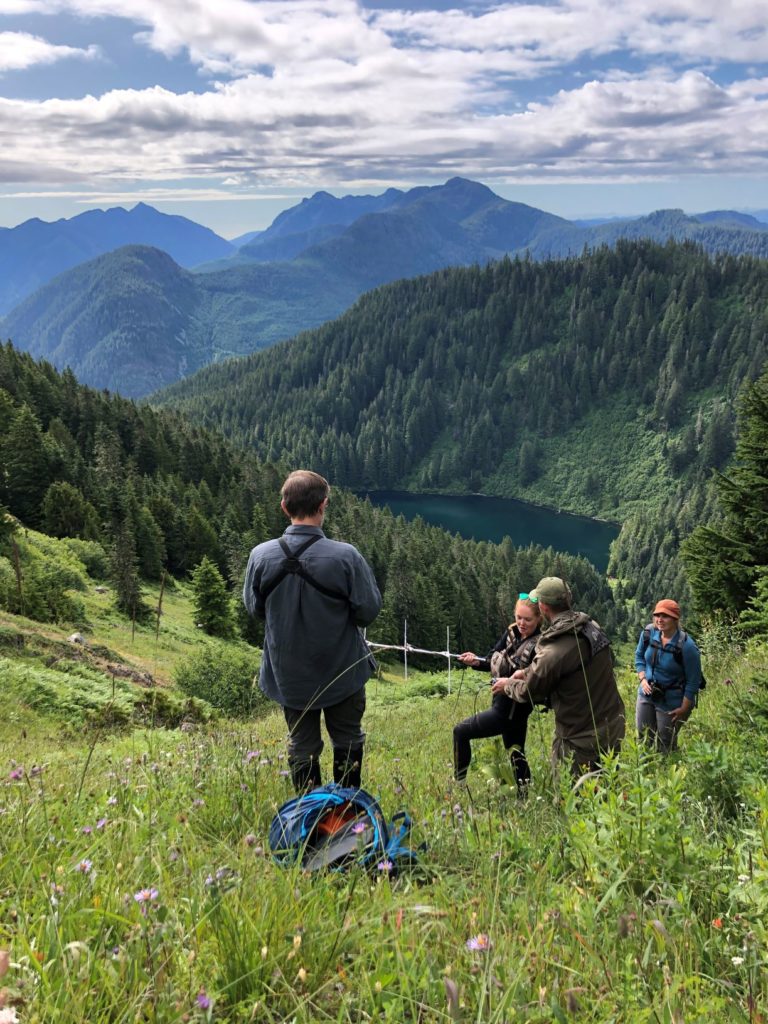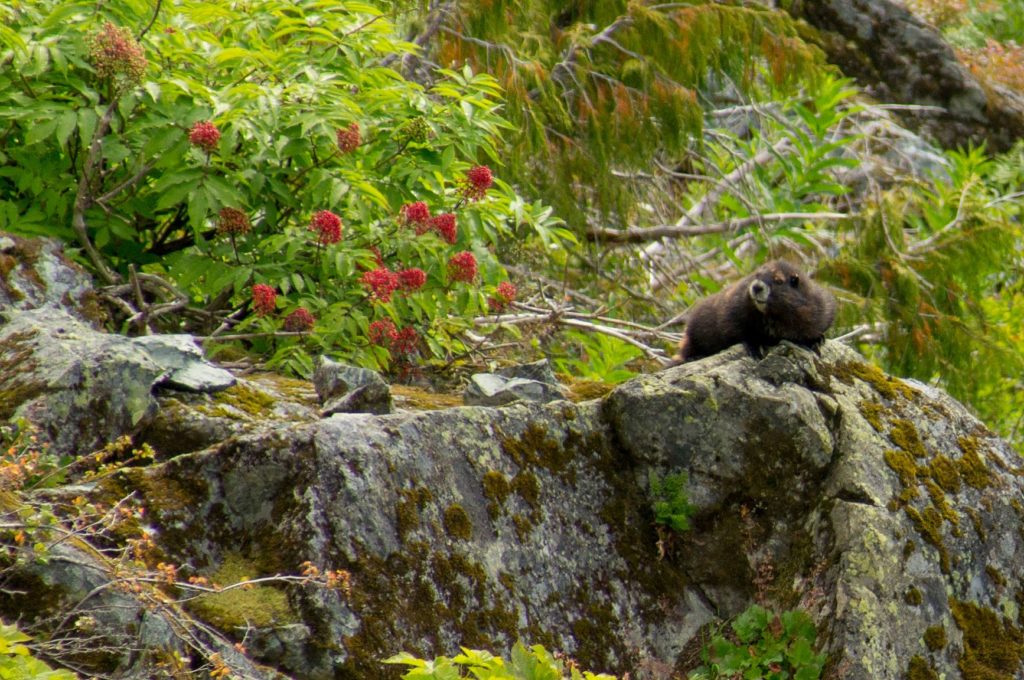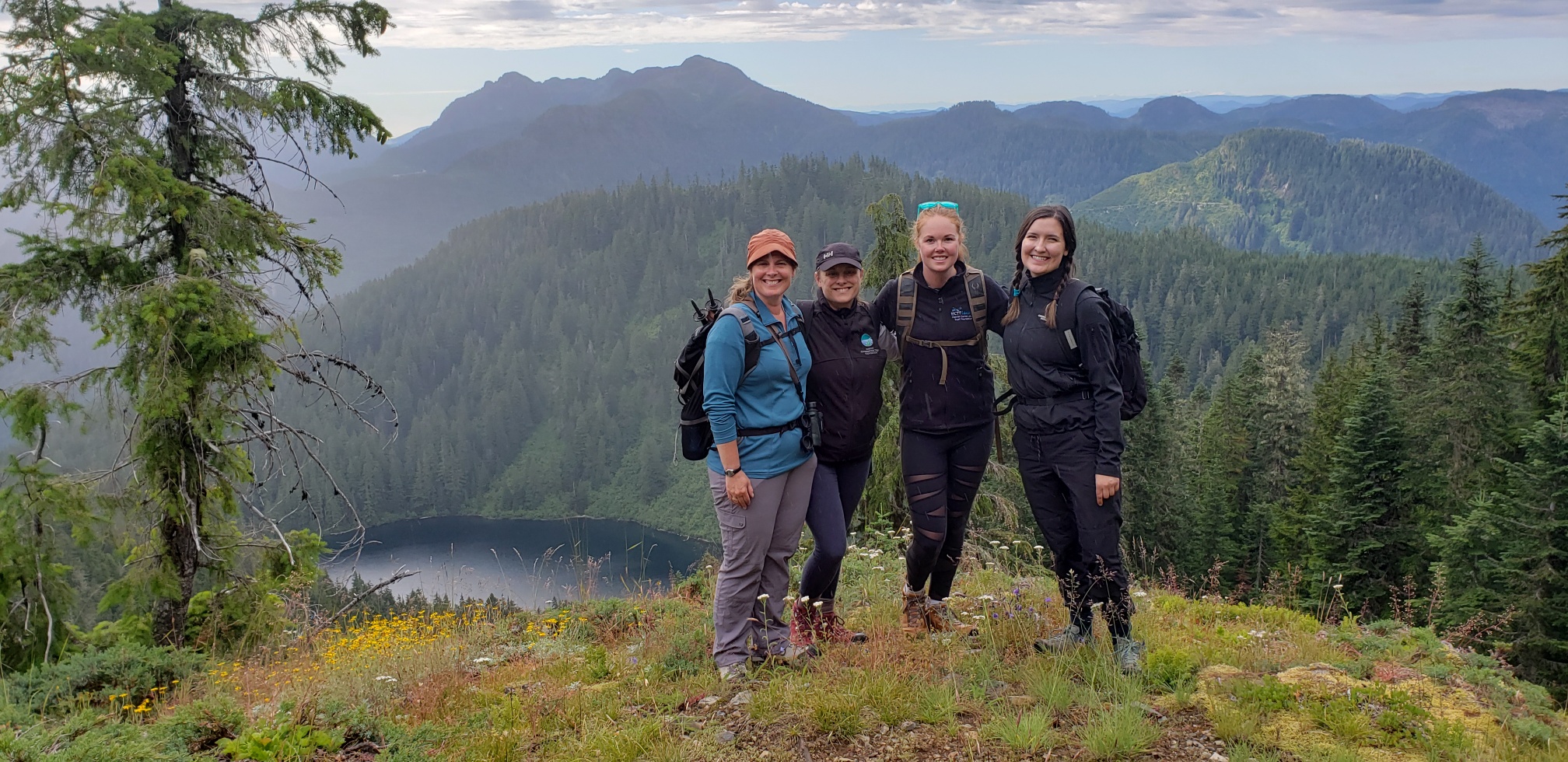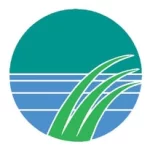This summer, HCTF staff members were invited to join a team of researchers from the Marmot Recovery Foundation at the Haley Lake Ecological Reserve in the Nanaimo Lakes District to observe Vancouver Island marmots (Marmota vancouverensis). The staff members were treated with good weather, great scenery, and many marmot sightings. Marmots Alan and Towhee put on quite the show by sun tanning on rocks, chasing each other, and even touching noses!
Marmot Recovery Foundation Executive Director Adam Taylor and Acting Field Coordinator Mike Lester guided the HCTF group across the steep terrain of the Haley bowl to locate the marmots through the use of telemetry and binocular glassing. Throughout the excursion, the staff learned about the physiological and ecological requirements to sustain the marmot population plus predation risks and other threats that marmots face. The Marmot Recovery Foundation is collecting important information to help us better understand these endangered mammals, but there is still a lot to learn.

With only an estimated 200 marmots remaining in the wild, the Vancouver Island Marmot is currently listed as Endangered under the federal Species At Risk Act (SARA) and by the Committee on the Status of Endangered Species (COSEWIC). They are one of the rarest mammals in the world.
Although work at the Haley Lake site is not directly funded by HCTF, the staff were able to see first-hand the various field methods used by the Marmot Recovery Foundation at more remote sites on the Island. HCTF has funded a multi-year program to assist the Marmot Recovery Foundation with their work in Strathcona Park. The grant has enabled the team to work towards restoring a self-sustaining population of marmots through the use of translocations, food enhancement, monitoring and potentially habitat restoration. Another important aspect of their program is engaging the public and encouraging people to report marmot sightings. If you see a marmot while in the backcountry, you can submit your observations to marmots@telus.net or 1-877-4MARMOT (1-877-462-7668). To learn more about the Vancouver Island Marmot and how to help, visit their website at https://marmots.org/

Marmot Alan* sun tanning on a rock. Photo Credit: Adam Taylor
*On August 15, we were saddened to learn about the passing of Alan. Alan was described to be quite the adventurous and nomadic marmot! To learn more about Alan and his incredible peripatetic life, please visit the Marmot Recovery Foundation blog.







